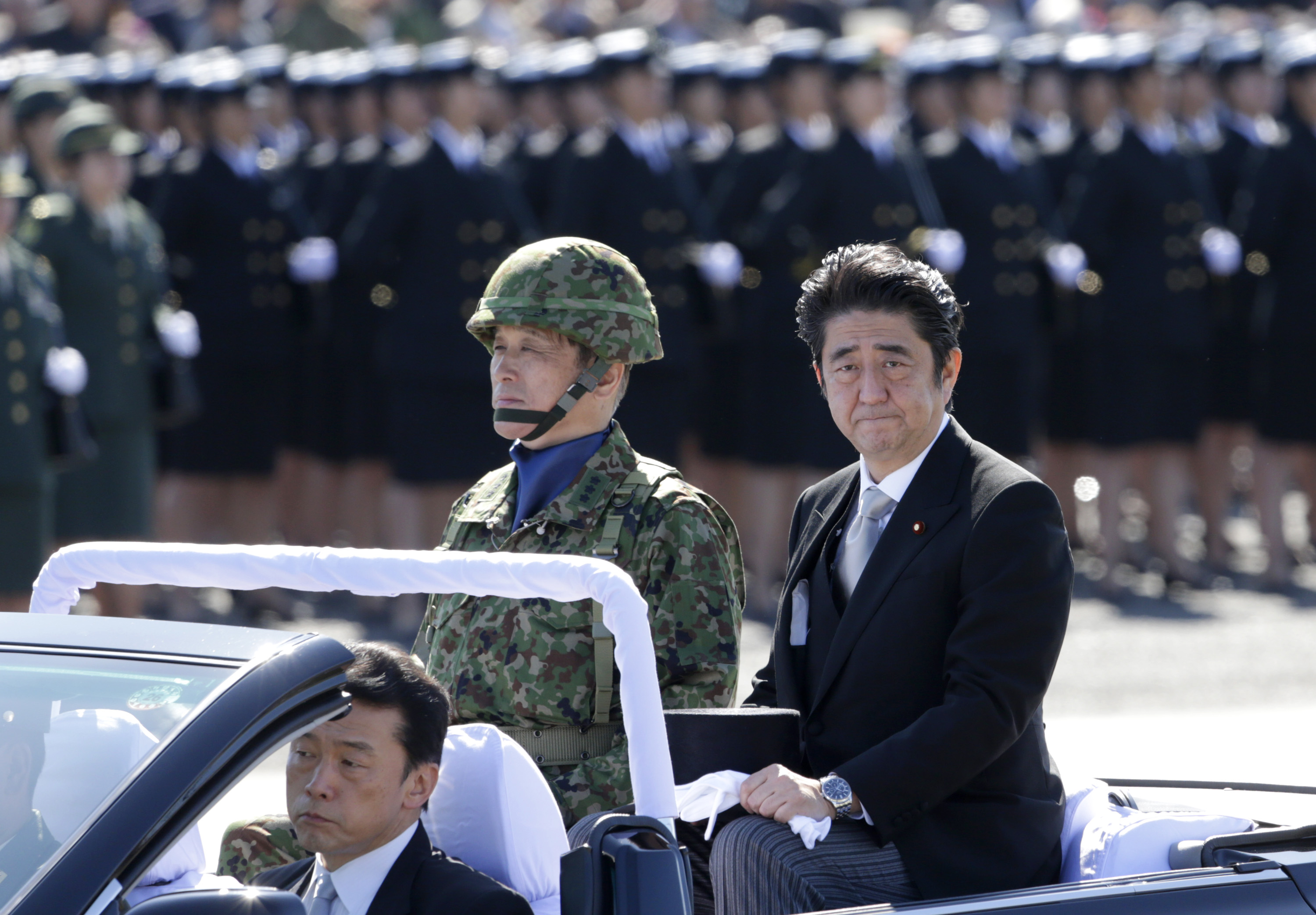TOKYO (AP) — Japan relaxed a decades-old ban on military-related exports Tuesday in a bid to expand joint arms development with allies and equipment sales to Southeast Asia and elsewhere.
The new guidelines endorsed Tuesday by the Cabinet are part of Prime Minister Shinzo Abe’s push to bolster national security amid China’s military expansion and North Korea’s nuclear threat.
Abe has said Japan needs to play a larger role in international peacekeeping and defense cooperation. His government is pushing to allow Japan to defend allies, such as the U.S., if they are under attack, by re-interpreting the war-renouncing Article 9 of Japan’s constitution.
The new export guidelines pave the way for Japan to join arms technology development with the U.S. and other allies including Britain, France and Australia and acquire more advanced defense capabilities and equipment, said Nobushige Takamizawa, deputy chief of a recently created National Security Secretariat.
He said Japanese contractors could also gain access to technology and enhance their competitiveness.
The move, which reverses Japan’s nearly half century-old self-imposed restrictions on weapons-related exports, could escalate tensions with China and South Korea.
Yosuke Isozaki, a special adviser to Abe, said that weapons or related technology exports would be allowed only when they serve international cooperation or Japan’s national security. He said Japan will carefully scrutinize the importing country’s intentions and ensure that the exports are not transferred to third parties without Japan’s consent.
“There is no change to Japan’s policy of not allowing any exports that would encourage other countries’ conflicts,” he told reporters at an embargoed briefing on Monday.
Takamizawa said Japan will primarily export technology and equipment for rescue, transport, surveillance and mine sweeping, and is not considering assault equipment such as tanks and fighter jets.
Possible exports include rescue aircraft to India, mine detectors to developing countries and anti-piracy patrol ships to Indonesia, Philippines and several other countries in Southeast Asia, officials said.
Japan adopted three principles in 1967 banning the transfer of defense equipment and technology to communist states and those in international conflicts or under U.N. sanctions. Those were later expanded into a blanket ban.
The government has issued ad hoc exemptions to the ban, such as for Japan to participate in the joint development of weapons with the U.S. The new guidelines lay out conditions for military-related transfers, so exemptions will no longer be needed. They are an attempt to make the process more predictable for partner countries and companies both in Japan and overseas.
Japan’s trade and industry ministry annually receives about 2,300 applications for military-related exports, mostly for repairs, and the number is expected to increase.


